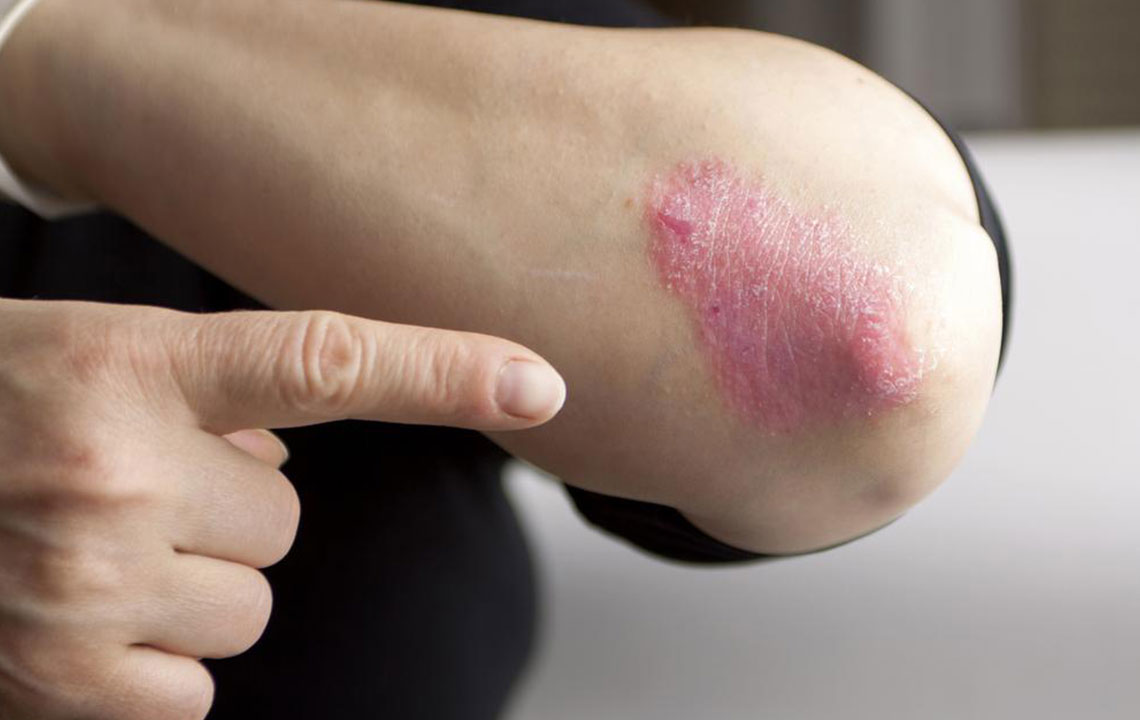Chronic Plaque Psoriasis And its Effective Treatment
Psoriasis is a disease of the skin, and it affects hands and feet, elbows, knees, scalp, eyelids, skin folds, or can appear anywhere on our body. Psoriasis is not limited to any specific part of the body, and it significantly affects the quality of our life. It is a chronic inflammatory cell-mediated disease mostly affecting skin and joints.

Treatment for chronic psoriasis
Psoriasis may present symptoms similar to other skin ailments, hence detecting it is difficult. Thus it becomes necessary to confirm the diagnosis through microscopic examination of a skin sample, family history of psoriasis or by physical examination. Psoriasis is treated with the severity of disease and its progression, areas affected, type of psoriasis, its location and patient’s response to its initial treatments. Doctors often use trial and error approach to find a treatment which best suits the patient and may switch in between if the treatment does not work or produce adverse reactions of the same.
Topical chronic psoriasis treatment
Here, the treatment is direct to the skin. Some forms of moisturizers and lotions, vitamin D3, salicylic acid, coal tar, etc. are used to give a soothing effect. It helps to improve the condition of skin and is mostly combined with strong remedies. It helps to slow down the growth of skin cells and make our skin look younger and brighter.
Light therapy or phototherapy as chronic psoriasis treatment
It involves exposing of skin to ultraviolet light on a regular basis under expert supervision. Source of light includes natural sunlight or artificial UV light to treat chronic psoriasis. The treatment should be carried out consistently either in a clinic or at home for improved results.
Systemic chronic psoriasis treatment
Systemic medications are usually used to treat chronic psoriasis, and these drugs work throughout our body. Here, the medicines are taken internally in a pill form, liquid form or through injection. It is such a treatment that reaches all cells throughout the body via the bloodstream. Different drugs are taken orally or via injection include cyclosporine, retinoids, acitretin, etc. These drugs suppress our immune system and also decrease the rapid turnover of skin cells.
Combination therapy
This therapy involves a combination of light, topical and systemic treatments and lower doses of each can lead to increased effectiveness of the recovery of disease. This therapy involves many approaches for treating psoriasis-like duration of the treatment, severity involved, possible side effects, etc.
Complications involved in treating psoriasis
Chronic psoriasis is related to various physical and physiological difficulties. It involves dry, itchy and peeling skin, red rashes on the skin, side effects of the treatment, etc. It can lead to depression and anxiety among patients by being self-consciousness about oneself. It can also cause heart failure because heart rate accelerates due to increased blood flow during the chronic psoriasis treatment.
Researchers are trying to understand the inheritance of psoriasis and various genes involved in the same. Psoriasis is characterized by abnormal growth of epidermal cells of the skin. Once the patient develops psoriasis, it can be cured on its own or under doctor’s supervision depending on its severity. Markers used for diagnosis involves proteins involved in gene mutations for development of psoriasis. Nutritionists recommend losing weight, having a healthy diet, vigorous exercise, etc. to get rid of psoriasis. Even people with chronic psoriasis can be cured entirely with constant follow up and medical history.











